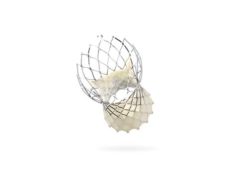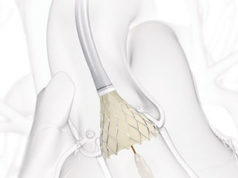
New data from the CoreValve US Pivotal Extreme Risk Study and the real-world NOTION trial (Nordic aortic valve intervention Trial)—both of which examined patients with the CoreValve transcatheter aortic valve implantation (TAVI) system (Medtronic) at five years post-implant—were presented at the 2018 American College of Cardiology (10–12 March, Orlando, USA).
These show similar rates of all-cause mortality (27.7% for TAVI vs. 27.7% for surgical aortic valve replacement) and superior haemodynamic performance for TAVI (mean aortic valve gradient of 8.22mmHg vs. 13.71mmHg for surgery) compared with surgery.
The physician-initiated NOTION trial studied an all-comers population of 280 patients at least 70 years old who were randomised to surgery or TAVI using the CoreValve system. Also presented at ACC were the final five-year results from the CoreValve US Pivotal Extreme Risk Study, which enrolled the first US IDE cohort of patients ever to be treated with the self-expanding CoreValve TAVI system.
Results from the study continued to show positive outcomes at five years for the surviving patients—all of whom were deemed to be facing considerable harm or mortality with a surgical valve replacement. Patients implanted with the CoreValve system maintained a notable improvement in quality of life (mean change from baseline in KCCQ of > 20 points at five years) and sustained low mean gradients (7.63mmHg).
H Gustav Thyregod (Heart Center, Rigshospitalet, Copenhagen, Denmark), who presented the NOTION data at the ACC, says: “These five-year outcomes of the NOTION data add to the mounting body of longer-term evidence supporting the effectiveness of TAVI. We are pleased to see the strong haemodynamic performance maintained over time without any indication of valve deterioration.”
Pieter Kappetein, vice president and chief medical officer of the Heart Valve Therapies business, comments: “It is remarkable to see patients, whose only aortic valve replacement option was to undergo a TAVI procedure, continue to live an improved quality of life five years later. While the TAVI therapy continues to show promise in less sick patients, it is important to acknowledge that the early pioneers of this therapy were those who truly had very limited treatment options. It is satisfying to see that many of these early patients continue to do well with the self-expanding TAVI platform, especially as the therapy expands to lower-risk patients who are expected to live longer.”













